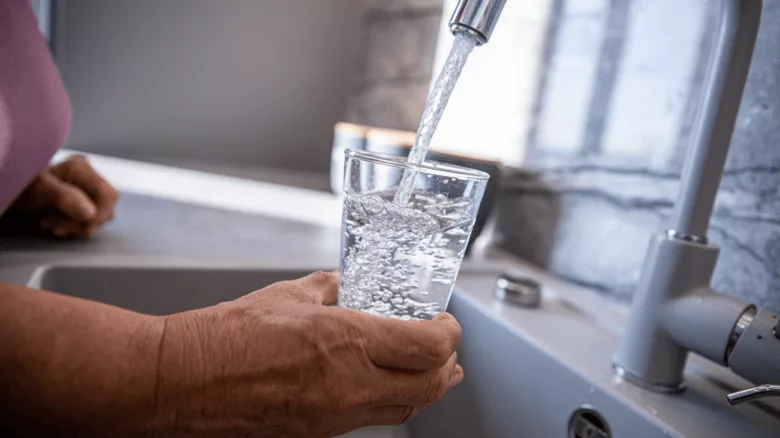EPA ‘Deregulation’ Plan Targets Environmental Protection Rules
EPA’s plan ‘dramatically weaken’ clean water protections says the Waterkeeper Alliance

Image via Vitapix from Getty Images Signature
The Environmental Protection Agency (EPA) says it is implementing a “deregulation” plan in which regulations that protect the environment in several areas—including three that impact water—are being “reviewed and revised” to comply with President Donald Trump’s executive orders to “unleash American energy.”
Touting the plan as the “biggest deregulatory action in U.S. history,” EPA Administrator Lee Zeldin said the deregulation effort is “driving a dagger straight into the heart of the climate change religion to drive down cost of living for American families, unleash American energy, bring auto jobs back to the U.S. and more.”
However, Jacqueline Esposito, the advocacy director of the Waterkeeper Alliance, an environmental group that seeks clean, healthy, and abundant water resources, criticizes Zeldin’s deregulation plan that was announced on March 12, 2025, saying the plan will “dramatically weaken landmark clean water protections.”
“Collectively, these actions alone threaten to reverse more than a decade of progress to reduce highly toxic pollutants from the environment,” Esposito said in a written statement. Furthermore, Zeldin’s plans “threatens to put water quality at risk across the United States,” she said.
The three water policies EPA is revising include:
- “Prioritizing” revisions to state permit programs for coal ash while increasing state implementation of the coal ash regulations that apply to coal-fired power plants that were established to prevent the release of contaminants such as mercury, cadmium, and arsenic from coal ash into waterways, groundwater, drinking water, and the air. Zeldin says such revisions “will empower those with local expertise to oversee more effective coal ash disposal operations.”
- Reconsider wastewater regulations under the EPA’s “Oil and Gas Extraction Effluent Guidelines and Standards” that govern wastewater discharges from field exploration, drilling, production, well treatment and well completion activities that Zeldin says, will “help unleash American energy.”
- Revise the definition of the “waters of the United States (WOTUS)” that the Clean Water Act (CWA) requires to establish federal jurisdiction over “navigable waters” within the U.S. therefore allowing CWA programs to be utilized to maintain water-quality standards. “EPA will start its review by expeditiously obtaining input from stakeholders who were sidelined during the previous administration,” and will undertake a rulemaking process to revise the 2023 definition of “waters of the United States” with a focus on clarity, simplicity and improvements that will stand, Zeldin says.
In addition, while not directly a water-policy issue, the EPA will reconsider limitations, guidelines and standards for the steam electric power generating industry that Zeldin says will “ensure low-cost electricity while protecting water resources.”
Additional deregulation actions being implemented by the EPA are:
- Reconsider regulations on power plants.
- Reconsider regulations on the oil and gas industry.
- Reconsider mercury and air toxics standards that Zeldin says “improperly targeted coal-fired power plants.”
- Reconsider a mandatory Greenhouse Gas Reporting Program that Zeldin says “imposed significant costs on the American energy supply.”
- Reconsider a “risk management program rule” for oil and natural gas refineries and chemical facilities that Zeldin says made those facilities “less safe.”
- Reconsider the light-duty, medium-duty, and heavy-duty vehicle regulations that provided the foundation for an electric vehicle mandate established under the Biden administration.
- Reconsider both the 2009 Clean Air Act “Endangerment Finding” that greenhouse gases endanger both the public health and the environment for current and future generations, and the regulations and actions that rely on that Finding.
- Reconsider the technology transition rule that forces companies to use certain technologies that Zeldin says increase costs on food at grocery stores and semiconductor manufacturing.
- Reconsider the “Particulate Matter National Ambient Air Quality Standards” (NAAQS) that Zeldin says “shut down opportunities for American manufacturing and small businesses.”
- Reconsider the multiple “National Emission Standards for Hazardous Air Pollutants” for American energy and manufacturing sectors.
- Restructure the “Regional Haze Program” that Zeldin says “threatened the supply of affordable energy for American families.”
- Overhaul the “social cost of carbon,” which is a financial estimate of the economic damages—in dollars—that result from emitting an additional ton of carbon dioxide into the atmosphere.
- Redirect enforcement resources to EPA’s core mission that Zeldin says is to relieve the economy of unnecessary bureaucratic burdens that drive up costs for American consumers.
- Terminate the environmental justice and diversity, equity, and inclusion branches of the EPA.
- End the “Good Neighbor Plan” that Zeldin says was used to expand federal rules to more states and sectors beyond the program’s traditional focus that led to the rejection of nearly all “state implementation plans” (SIPs), which are a collection of regulations and documents used by a state, territory, or local air districts to implement, maintain, and enforce the NAAQS.
- Work with states and tribes to resolve the backlog of SIPs and of tribal implementation plans that Zeldin says the Biden administration refused to resolve.
- Reconsider “exceptional events” rulemaking to work with states to prioritize the allowance of prescribed fires within state and tribal implementation plans.
- Reconstitute the “Science Advisory Board” and the “Clean Air Scientific Advisory Committee.”
- Utilize enforcement discretion to further North Carolina’s recovery from Hurricane Helene.
However, Esposito disputes Zeldin’s claim that positive economic impacts of revising, reconsidering, or eliminating some current environmental regulations justify those actions. Rather, the regulations produced positive economic impacts, she said.
“When the first national standards requiring coal- and oil-fired power plants to reduce mercury and other toxic air pollution were finalized in 2011, EPA itself justified this action by demonstrating the environmental and public health benefits of the regulation outweighed the costs to industry,” Esposito said.
The yearly health benefits from the standards that were estimated by the EPA included the avoidance of 11,000 premature deaths and 130,000 cases of childhood asthma, according to the Alliance. “The costs to the industry were estimated to be between $9.6 billion and $9.8 billion annually, while the benefits were valued at between $37 billion and $90 billion annually,” Esposito said.
Click here to read the EPA’s announcement on its deregulation plan.
Looking for a reprint of this article?
From high-res PDFs to custom plaques, order your copy today!





